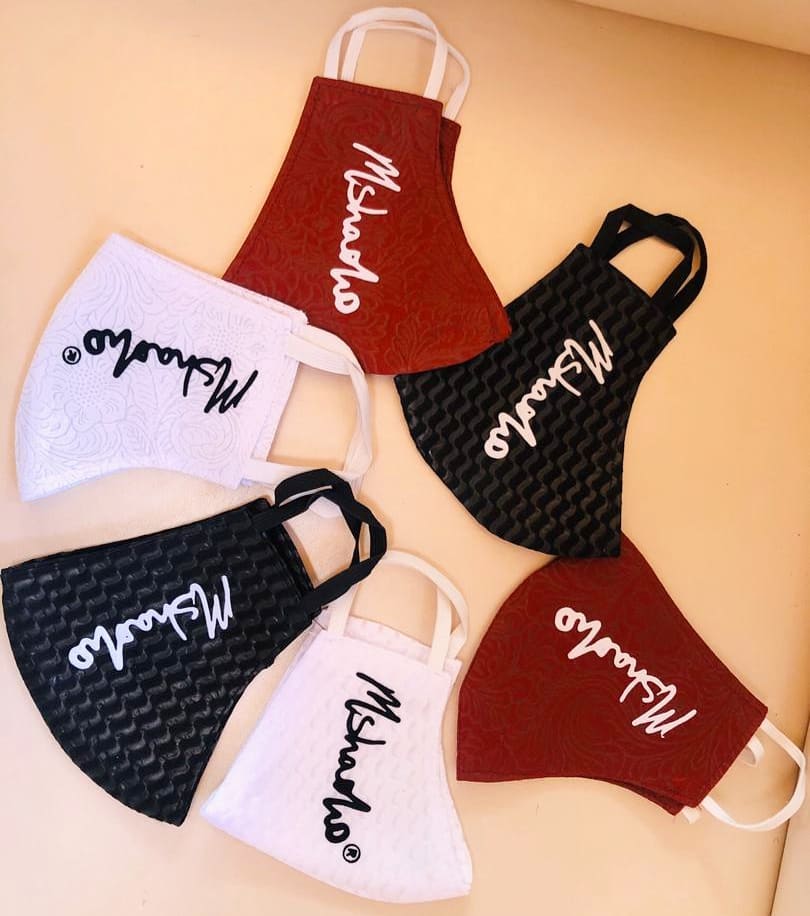The mandatory wearing of masks came into effect in May 2020 as one of the national strategies towards the curbing and handling of the Covid-19 pandemic, enforced by the health ministry with strict instructions from the World Health Organisation (WHO).
Of late, Namibians have bombarded the health sector by making reusable masks as revenue or income-generating stream for them and to ultimately assist the government in terms of supplying masks in bulk to the public at large.
With variations in the cost of masks and those who can’t afford them, one would wonder if they have not become a fashion statement in terms of luxury or are people wearing because they have to, for health reasons, considering that some wear them inappropriately, under their chin most of the times, on their foreheads, others around their wrists, some colour coding, and so forth.
King Tee Dee is one of the entrepreneurs who ventured into the fashion industry with his Mshasho Clothing brand. He tested waters with the Mshasho leather-looking masks, with a softer layer on the inside. His masks are being sold for N$60 each.
In a Nampa interview, artist Ben Kamati stated many brands are indeed jumping on the facemask bandwagon to boost their sales. “My branded face masks are selling like hotcakes,” he said.
In the same publication, former artist now businessman Jacob Amugulu, also known as Leghetto, from Kiano Kiddies said a branded mask is a walking billboard of any business. Amugulu also said he is enjoying how companies are challenging one another to bring out the most attractive branded masks.
Recently, those in fashion retail have also attempted to make masks, selling between N$150 to N$300.
Local musician Gazza also had custom and multipurpose masks going for N$299, which ironically sold fast like kapana after lockdown.
The ministry of industrialisation and trade initiated the scheme to empower local small-scale businesses after it noted there is a demand for face masks that have surfaced due to the need for protection from the fast-spreading Covid-19. The locally-produced masks are retailing between N$20 to N$50.
According to The Namibian Standard Institution (NSI), “barrier mask” devices are intended to complement protective measures and social distancing rules. It is envisioned for the general public and any healthy or asymptomatic person.
The guidelines, shown to Entertainment Now! by the NSI, further state that the barrier mask in no way exonerates the user from the routine application of the essential protective measures and of the social distancing rules.
The barrier mask is a single layer or a multi-layer composite, made of fabrics (nonwoven, woven, knit) with or without film. It has a device for adjustment on the user’s head (head harness).
The NSI mentioned that the masks shall be able to be adjusted to fit closely over the nose, cheeks and chin of the wearer to ensure sufficient sealing of the user’s face against the ambient atmosphere when the user’s skin is dry or damp or when the user moves his/her head.
Inhaled air mostly penetrates the barrier mask through the single layer or multi-layer composite and arrives directly in the region of the nose and mouth. Exhaled air is discharged via the same route directly into the ambient atmosphere. The barrier mask may have different shapes and structures.
Amidst all of these mask fiascos, the World Health Organisation representative, Mary Brantuo, has on several occasions informed the public through the media on the importance of individuals not to resort to using medical masks, as they befit health workers.
– psiririka@nepc.com.na


